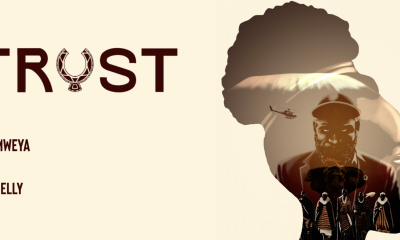In this week’s news roundup, you’ll read about Binance’s Charity and Women in Tech partnership to train women in vulnerable parts of Africa, Luno’s partnership with South Africa’s rugby captain in a new cryptocurrency education campaign, CAR’s court rejection of the use of Sango Coin to purchase CAR citizenship, and more.
Binance Charity and Academy partners with Women in Tech to Offer Free Blockchain Courses for Rural Communities in Africa
Binance Charity, the philanthropic arm of Binance, has announced a flagship global partnership with Women in Tech, that will offer educational courses to 2,800 women from vulnerable communities across Africa and Brazil.
Binance Charity will donate $250,000 BUSD for a six-month project to empower women with the knowledge and skills to thrive in a Web3 future. The first courses will take place in Cape Town, South Africa, and Rio De Janeiro, Brazil, in October of this year. The partnership will help close the gender gap in tech, which has continued to widen despite the blockchain market being expected to grow from $4.93 billion in 2021 to $200 billion by 2028.
“Binance believes the future of crypto should be built by all, not the few, so we’re creating certified courses and removing financial barriers for women, especially those from vulnerable communities, to study and train. It is important to us at Binance and Women-in-Tech that quality blockchain education, innovation, and research opportunities are within everyone’s reach,” said Helen Hai, VP of Binance and Head of Binance Charity.
Courses will be offered in classes of 25 to young women aged between 15 and 25 by qualified trainers both in person and online. The Web3 courses will be designed by Binance Academy and adapted to meet local context Courses, which will include: Blockchain Fundamentals, Crypto Fundamentals, Decentralization, Web3, and the Metaverse.
The South Africa pilot will take place in Cape Town at the Philippi Village Tech Hub in the Philipp Township for an additional 50 women. Over the duration of the six months, further programmes will be rolled out across Burundi, Ghana, Ivory Coast, Kenya, Morocco, Nigeria, Senegal, and Zambia.
South African Rugby Icon Siya Kolisi Partners with Luno to Headline New Crypto Advertising Campaign
Siya Kolisi, South African national rugby captain, will lead a two-year educational digital currency advertising in South Africa in partnership with Luno, a leading crypto exchange in South Africa.
The campaign’s rollout is expected to feature a series of television adverts that will promote a long-term investment attitude towards cryptocurrencies. Kolisi was front and centre of the first advert of the new campaign, which was aired during the Springboks’ third match of the Rugby Championship against Australia on Saturday.
In a statement highlighting Luno’s efforts in making crypto investing accessible to newbies that are unfamiliar with the space, Kolisi said, “Like many South Africans, I am new to crypto investment, so I had to do some research before deciding to partner with Luno. I love that Luno focuses on providing education for new crypto investors like me so we can make better, long-term financial decisions.”
Marius Reitz, Luno’s General Manager for Africa, highlighted the current downturn across cryptocurrencies markets as a prime example for investors to zoom out and focus on long-term investing in the space, “When you zoom out, the ups and downs do not change the fundamental potential of crypto to improve the world’s financial system, which is what its long-term value is based on. The long game in crypto means holding, rather than trading.”
Central African Republic Court Terms the Purchase of CAR Citizenship Using the Sango Coin Unconstitutional
Just over a month after the Central African Republic (CAR) launched the Sango Coin project that allowed foreign investors to purchase CAR citizenship by purchasing $60,000 worth of the coin, the Constitutional Court in the country has now ruled the move unconstitutional.
Despite the crypto winter, CAR’s government went ahead to launch the crypto project on July 25, 2022, amid backlash from various institutions, such as the World Bank, which distanced itself from the project. The court ruling, among other reasons, argued that nationality did not have a market and that residency required a physical stay in Central African Republic (CAR) as shown in a decree.
It is not immediately clear what the impact on the Sango Coin project will be over the coming days and weeks.
Binance Launches Educational Hub in Cameroon
Crypto exchange Binance has, in a partnership with Inoni Tech, opened a training center in Cameroon’s capital, Yaoundé.
Cheta Nwatarali, a Binance Angel and an active member of Binance Africa, told BSC News, “With an average of 4.2% global crypto owners, Africa boasts 53 million crypto users, the second after Asia. Binance prioritizes educating about web three education and advancement in Africa through webinars, workshops, meet-ups, etc., which means they already know the drive to expand the crypto ecosystem starts from Africa.”
The educational hub that was launched on August 25, 2022, will act as a training centre for in-person blockchain and crypto education, up-to-date crypto news as well as host regular in-person events. In addition, the space will also offer resources and training for young people across Francophone Africa.
This latest move is part of Binance’s continued efforts to make cryptocurrencies more accessible in Francophone Africa and other parts of Africa.
To learn more about Bitcoin, download the Bitcoin Beginner’s Handbook for free.


 Features3 years ago
Features3 years ago
 Bitcoin2 years ago
Bitcoin2 years ago
 Features3 years ago
Features3 years ago
 Features3 years ago
Features3 years ago
 Features3 years ago
Features3 years ago
 Features3 years ago
Features3 years ago
 Features8 months ago
Features8 months ago
 Bitcoin10 months ago
Bitcoin10 months ago




















 Central African Republic (CAR) has set up a 15-member committee that will be responsible for developing a bill on the use of cryptocurrencies and tokenization in the region.
Central African Republic (CAR) has set up a 15-member committee that will be responsible for developing a bill on the use of cryptocurrencies and tokenization in the region.
